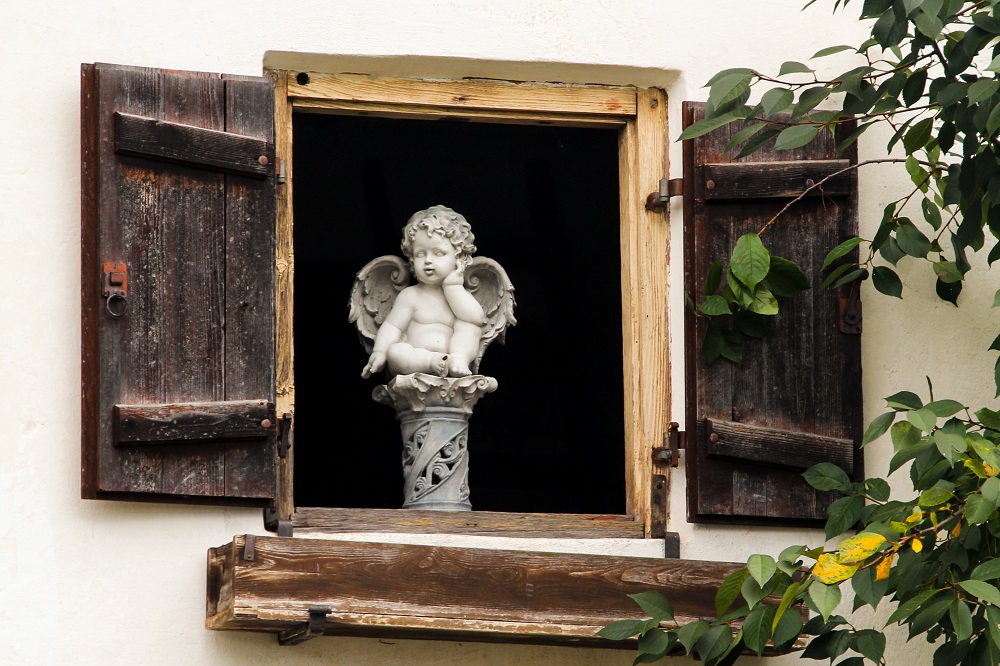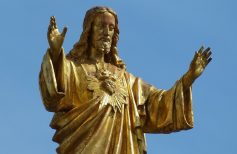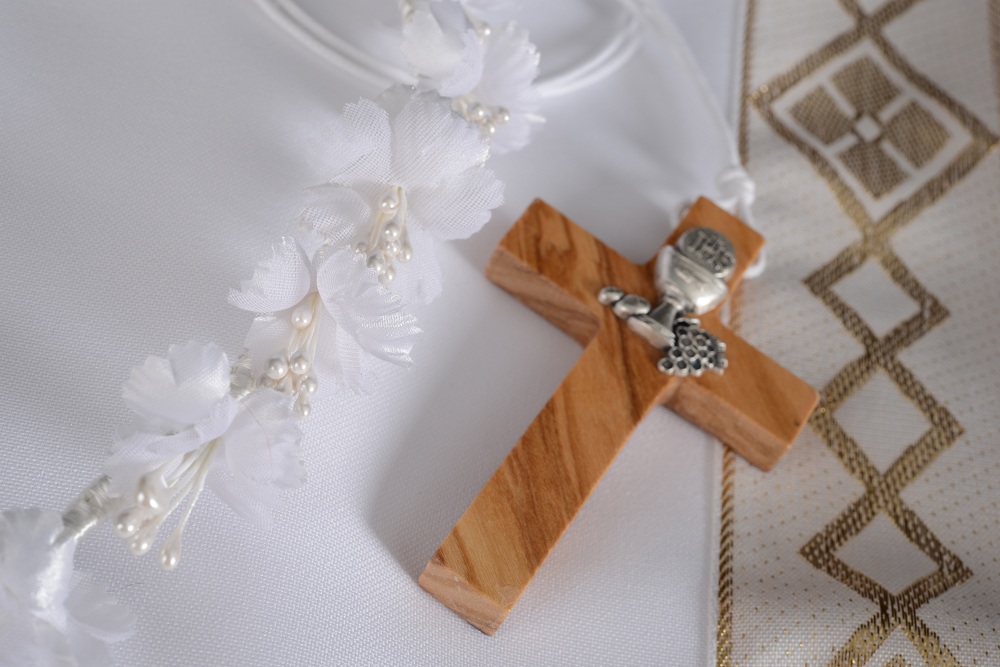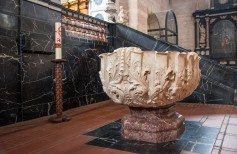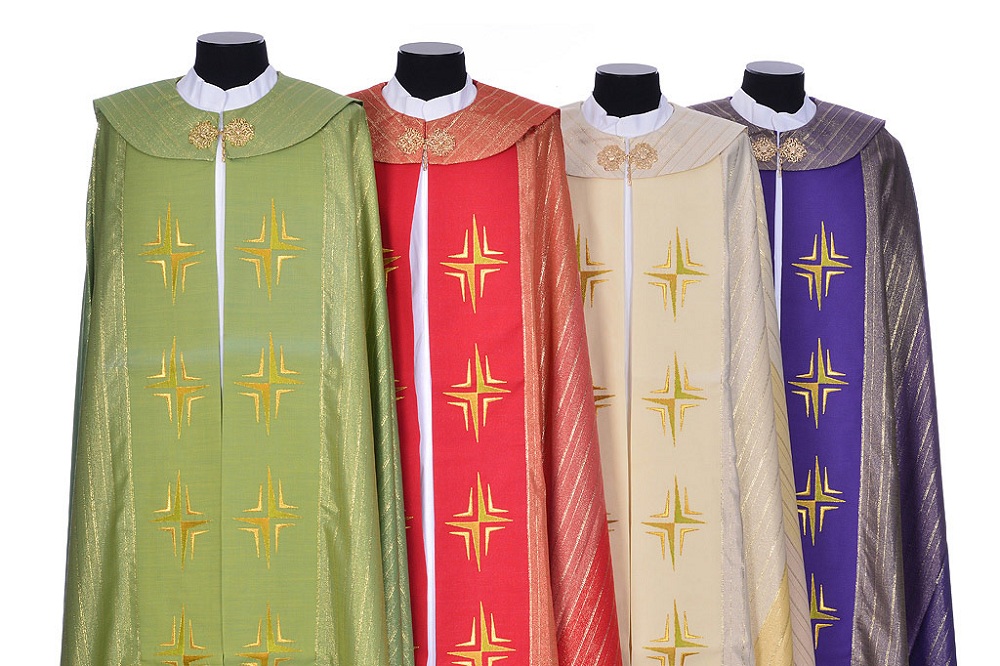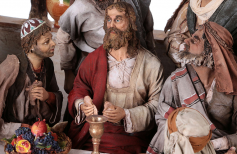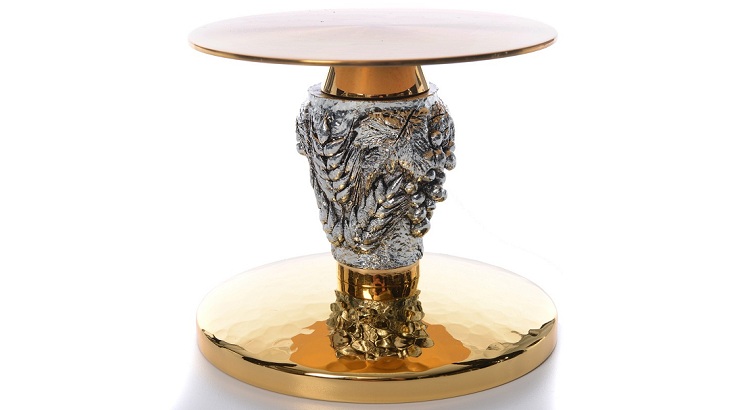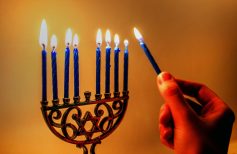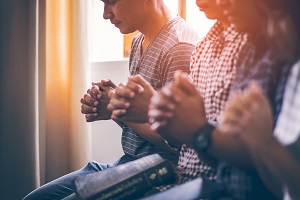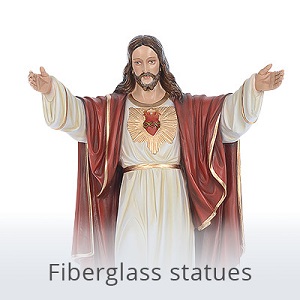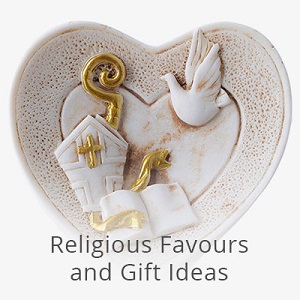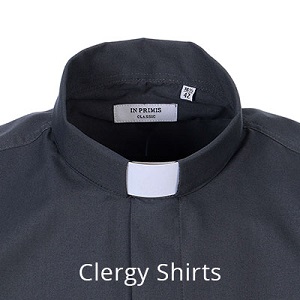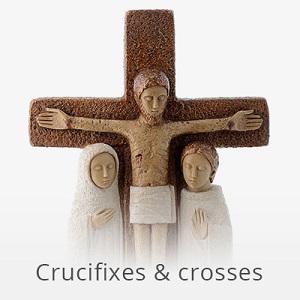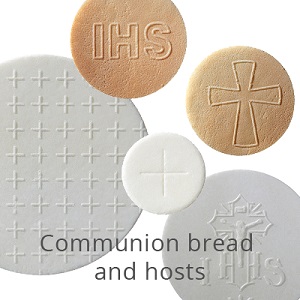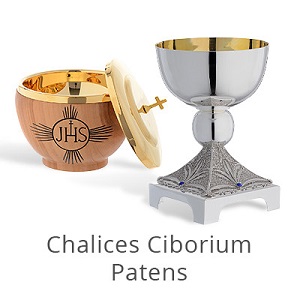The tradition of blessing during Lent and Easter is very ancient and represents one of the most important moments of the liturgical year, not only for the faithful receiving it, but also for the priests giving it. Let’s find out why.
We talked previously about the importance of the blessing, that is, the gestures and words a priest, or someone who acts in his place, performs to bless, meaning the invocation of God’s protection over one or more people, but also things and places.
The blessing is then a way to address God’s favor, His benevolence or a Grace upon someone or something. When the priest invokes the Lord’s Blessing on a house, he says: ‘May God’s blessing descend upon this house.’

Holy Water: a constant renovation of Baptism
Each time we get sprinkled with holy Water we remember our Baptism.
This liturgical ritual aims to obtain some sort of benefit for the blessed ones on one side, and consecrates the person(s), or even the object or the place receiving it, to God on the other side.
The ritual usually implies the priest to cross himself and then sprinkle those who wish to receive the blessing with blessed water. The sprinkling with blessed water recalls the Christening, the rebirth that God allowed us to set us free from the original sin.
Depending on the occasion, particular formulas and prayers come with the blessing.
Blessings (of people, canteens, objects, places) are nothing but sacramentals, that is, sacred signs through which people obtain spiritual effects and gifts, and the various circumstances are sanctified. The blessing itself is a prayer, a praise to God, since it comes from Him and goes back to Him, in a continuous circle of love. The priest, in fact, gives the blessing invoking Jesus’ name. By blessing God, we consequently bless whom He loves, which must be protected and placed under His aegis.
Sometimes blessings involve not only people but also objects, places, the countryside, animals, and even working tools. That is because all that is related to life and men sustenance is worthy of God’s love, and needs His benevolence and protection.
There are also special and solemn blessings, such as the Apostle’s Blessing, given by the Pope himself, for example the famous urbi et orbi blessing, addressed by the Pope to the whole world during specific occasions, or the papal blessing, given by bishops or priests in the name of the Pope.
Blessing of homes and families
The blessing of a family and the blessing of homes also belong to the Christian tradition. They usually take place in specific times of the liturgical year, close to the most solemn feasts. However, we might feel the need for a blessing on our home or family in other times. It is a way to strengthen people’s faith and spirituality, but also the place they live in, invoking Jesus’ strength and help, who was able to defeat death and resurrected, destroying all evil. Asking for a blessing to our priest can give us new energy to face difficulties, for example, when we experience a tragedy, a loss, or just during a hard time that involves members of the family. Blessing our homes can also limit evil actions upon them and those who live in them. Of course, we must not consider a blessing like some kind of magic formula that pushes all evil away from us and from those we love. It is our faith and the way we carry out our lives within the community that push evil away. People living in a house must keep together and faithful to the Lord, to the Virgin Mary and to the Saints. The blessing will have then the desired effect.
A special mention goes to newlyweds’ homes. The sacrament of the Wedding make them somehow able to bless their own home. Christ Resurrected is close to them and works through them. The spouses acquire the ability to bless their home, food and children as embodiment of the love of Jesus for the Church. In the article about blessed olive branches, we mentioned how the head of the family can bless the feast meal and, more in general, the house and its inhabitants, by sprinkling everyone with the olive branch dipped into blessed water received during Palm Sunday. Even widowers can do that, because they are still included in the grace of the sacrament of Wedding.

Blessed olive branches at Easter: should you keep them or throw them away?
When we go to Church on Palm Sunday, the last one before Easter, we receive a blessed olive branch.
Easter Blessings to families
The habit of blessing homes and families during Lent and Easter is very ancient. The Council of Trento already claimed how the Easter Blessings was important to strengthen the connections within the Christian community. Five hundred years ago, this particular care was mainly a way to prevent bad influences of heresies; today, it is a moment of communion and dialog between the faithful and the priests who go to their homes to give the Easter Blessing.
The priest enters the houses during Easter, but the presence of those who live in them is also fundamental. It is just as if Jesus himself went to their homes bringing joy and peace: it is fair that those who live there welcome him with just as much love and joy such an occasion requires!
When the priest enters the house, he greets the people with formula: ‘Peace be unto this home and unto all that dwell herein.’ The church brings then a message of peace to all the homes during the Easter Blessing.
But the Easter Blessing also recalls the need to recognize the importance of the family itself, united and consolidated within the Lord. That is why the priest reads or recites short passages of the Gospel, involving the members of the family in a moment of prayer and meditation.
This is a very important moment for the life of the families and the whole community. The Easter Blessing allows families to consolidate their relationship with the Church, keeping the dialog alive and open, which is too often forgotten due to the frenzy of modern life. It is very important to give ourselves this moment of communion, meditation and spiritual renovation. The sprinkling of holy water upon our home and us lets us remember how precious and strong the gift we received is, and makes us feel once again as a part of something big, strong and invincible: the Church.

